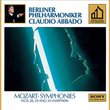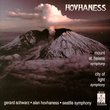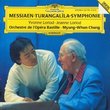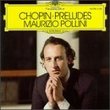| All Artists: Franz Joseph Haydn, Karl Böhm, Vienna Symphony Orchestra, Gundula Janowitz, Peter Schreier Title: Haydn: The Seasons Members Wishing: 1 Total Copies: 0 Label: Dg Imports Release Date: 1/2/1998 Album Type: Import Genre: Classical Styles: Opera & Classical Vocal, Historical Periods, Classical (c.1770-1830) Number of Discs: 2 SwapaCD Credits: 2 UPC: 028945771328 |
Search - Franz Joseph Haydn, Karl Böhm, Vienna Symphony Orchestra :: Haydn: The Seasons
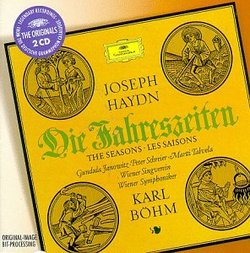 | Franz Joseph Haydn, Karl Böhm, Vienna Symphony Orchestra Haydn: The Seasons Genre: Classical
Vivaldi wasn't the only composer to write a Four Seasons. Haydn's version is an oratorio--essentially an opera without staging--in which three archetypal peasants sing of the joys and travails of country life throughout th... more » |
Larger Image |
CD DetailsSynopsis
Amazon.com essential recording Vivaldi wasn't the only composer to write a Four Seasons. Haydn's version is an oratorio--essentially an opera without staging--in which three archetypal peasants sing of the joys and travails of country life throughout the year. Coming after the sublime subject of The Creation, Haydn had qualms about the text, which he called "Frenchified trash" on more than one occasion. As if to compensate, the music he created was more colorful and vivacious than ever. The Seasons is, in fact, the largest single vocal and orchestral work before Berlioz--larger even than Beethoven's Ninth. It firmly establishes Haydn as not only the first classical master, but a firm precursor of romanticism. And "Romantic" is exactly the word which describes the grand, exuberant performance--the best available. --David Hurwitz Similarly Requested CDs
|
CD ReviewsRight on Par with Karajan's Schöpfung (Creation) Ed Luhrs | Long Island, NY USA | 03/04/2002 (5 out of 5 stars) "Not too long after hearing Karajan's version of Die Schöpfung (The Creation), I got this recording of Die Jahreszeiten (The Seasons) conducted by Karl Böhm. The chief competitor for The Seasons seems to be the Neville Marriner set. I have yet to hear the Marriner version, yet I have every confidence that the choral singing, orchestral playing, and acoustics are quite refined on that recording. I chose this recording, and I love it. First off, to most ears, the overall sound experience on this recording will be as near to exemplary as one could hope for. Secondly, the soloist team of Janowitz, Schreier, and Talvela is remarkable. Finally, the German lyrics to the score are printed with full translation in English. It irked me that the Marriner recording did not print the lyrics and the translation. Reading the meaning of the words in this piece is a big plus, just as with The Creation. One need not sit there and read along word for word to enjoy; however, if for example the music starts to sound ecstatic, and one becomes curious, it's good to know that the corresponding track has something to do with grapes and the autumn harvest.According to some, the choral singing is not perfectly crisp... in my estimation, this is a small concern compared to the inspiration of the performance. I think this performance makes a kindred companion to Karajan's Creation. What defines both recordings is the vitality, the synergy, the overall conception. I'm glad Amazon has listed Böhm's as an essential recording, along with Karajan's Creation, because both seem like canonical interpretations to me.Whichever recording you're thinking about, you may wonder if The Seasons is as enjoyable as The Creation... absolutely! It's hard to imagine starting with The Creation and not enjoying The Seasons. Both are celebrations of life. Both have Haydn written all over them. Both provide a nice snapshot of some of the society and culture of the eighteenth century. And both are heaps of fun." The Greatest Haydn Recording Since Karajan's The Creation Nikolay Voldman | Bronx, New York United States | 09/18/2001 (5 out of 5 stars) "Fantastic, Marvelous, Superb, what words can explain this recording? Such beauty, such sound, such incredible singers and conductor. No recording of The Seasons can match this one. This is an essential C.D. that is a MUST in your classical library. Get the Karajan The Ceation on DG and this recording also on DG. You won't regret it!!!!!" Haydn's Spectacular "Jahreszeiten" H. Hanna | Goleta CA USA | 02/01/2006 (5 out of 5 stars) "Karl Boehm is a master of classical music interpretation. This performance is unique in the series of Beethoven, Haydn and Mozart recordings. The obvious inspiration in the "Jahreszeiten" is spellbinding. This music contains many figures which point to Beethoven and great romantic music which follows Haydn's summit of the classical musical form. Boehm takes excellent care of each note, each phrase and theme. Overall delightfull recordings worthy of immediate addition to the collection of any serious student of the classical genre."
|

 Track Listings (20) - Disc #1
Track Listings (20) - Disc #1



